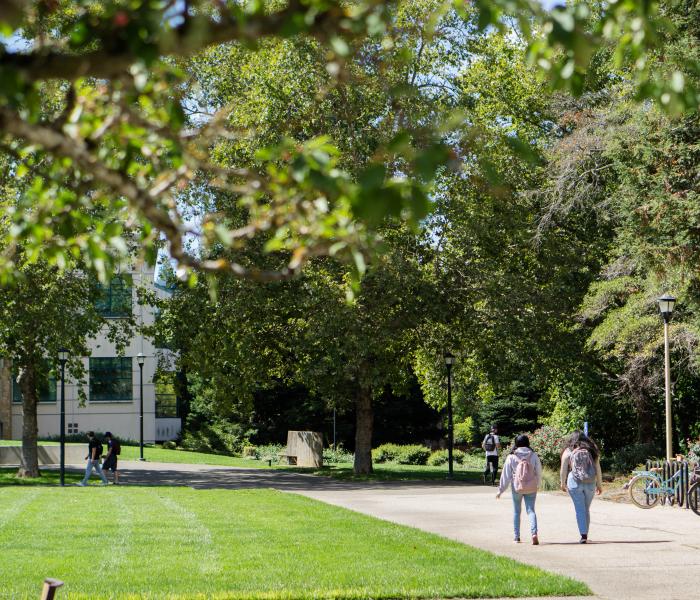About the Philosophy Department
The Department of Philosophy specializes in researching and teaching about the nature of ethics and value. We divide the major into concentrations that align with faculty research interests and specializations.
- Josh Glasgow advises the Pre-Law and Applied Ethics concentration. This concentration is ideal for students who are interested in pursuing careers in law, public policy and/or public administration.
- Andy Wallace and Gillian Parker advise The Good Life concentration. This concentration is ideal for students who are interested in the foundations of ethics and value, especially from a multidisciplinary point of view.
- John Sullins advises the Science, Technology, and Ethics concentration. This concentration is ideal for students who are interested in ethical problems associated with artificial intelligence and the application of science to social problems.
- Megan Burke advises the Social Justice concentration. This concentration is ideal for students who are interested in studying problems of equity, justice, fairness, gender, racial and economic discrimination.
The department trains students for ethically informed careers in the public and private sectors. Students who are motivated to make the world a better place will find philosophy a perfect major for them. Students will learn about the foundations of ethics and value, how to clarify their own core values, how to solve moral problems, and how to develop careers that reflect and express their ethical commitments.
The philosophy department is also home to the Center for Ethics and Law in Society. CELS offers a lecture series each Fall. Leading scholars and activists speak on vital moral problems, such as climate change, social justice, health care, freedom of the press, and more. Students can enroll in the lecture series, earning credits towards their major, and have opportunities to meet and interact with guest speakers. Internships with CELS are also possible.
Diversity & Social Justice
Recognition of the marginalization of historically disenfranchised and oppressed groups within western professional philosophy began to emerge in the profession in the late twentieth century, motivated by individuals concerned with social justice and often involved in social movements. These efforts have forged practices to diversify the demographics of professors and students in the profession and urge for inclusion in the teaching of philosophy and in philosophical research. Unlike in the past, students can now study race and racism, gender, sexism and misogyny, LGBTQ issues, immigration, disability, and environmental issues as important philosophical concerns.
Here in the Department of Philosophy at Sonoma State, we are committed to philosophy that supports diversity, equity, and inclusion. Our faculty take diversity into account in their teaching, including minority perspectives alongside and in critical conversation with the traditional canon. We are mindful of having diverse speakers at our events and supporting local, regional, and national social justice efforts. We are dedicated to serving students of all populations and being sensitive to the needs and different life chances of minority and marginalized students. This focus can be found in each of the concentrations in our major and is central to a number of our course offerings.


